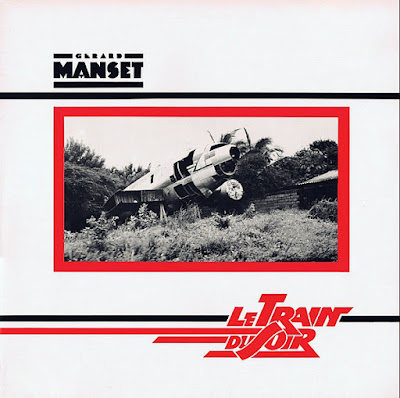The great thing about Bob Dylan is that it's almost impossible to write or discuss him without losing the iconic stance he has on pop culture. From day one it seems Dylan was made to be great, especially when he changed his name from Zimmerman to Dylan. In my world, Dylan is very much the pop entertainer and more in tune to someone like David Bowie than the 1960s Folk Music scene. He used the landscape, like Bowie using whatever he read or saw, but the truth is, both characters made themselves up to be what they are - not only great songwriters but a theatrical presentation as well.
"Blood on the Tracks" is often seen as a personal work by Dylan. Perhaps due to his divorce or the after-effects of the separation that took place at the time of the recordings. One can fish into the words of these songs for a clue, but I suspect that Dylan doesn't think in that manner. A bad incident or day for him is a springboard of imagination and various narrations, and at the end of the day, Dylan wants to tell a tale that will be enjoyed, and therefore he's more of a music hall performer than a raw rock n' roll soul. Dylan is not a journalist, but more of a short story writer, with an incredible amount of details in his narratives. "Blood on the Tracks" as an album, can probably be made into a film, or a narrative novel.
Oddly enough, it was only a week ago that I heard this album as a whole piece. Before that, it is just what I heard on the radio, and there are favorite songs here: "Tangled Up in Blue," Simple Twist of Fate," and of course, "Idiot Wind." Listening to side one of "Blood on the Tracks" is similar to listening to a greatest hits album. It's interesting to hear this work as an album, instead of separate songs. All stand by themselves, but the mood that runs through the collection is consistent, and there is no 'loose' cannon here, it all fits like a well-designed puzzle.
"Idiot Wind" stands out because it is so angry, or I should say the character in the song is angry, yet, the humor is very tongue-in-cheek. One can think it's a song from a psycho killer. On the other hand, it may be my favorite Dylan vocal. The way Dylan sings he reminds me of Lotte Lenya, in a very Bertolt Brecht method of separating the listener from the emotion, and one hears the intelligence behind the words. The character is angry, but the song itself is not furious. There is a distance between the character in the song and what he's singing about. His technique makes the words sting, because of its setting. Dylan looks at his songs like a scientist looking at an object in a test tube. There is a strong sense of objectivity, and for the listener, it's a subjective experience, as well as presuming that the character in the song is causally commenting on the 'facts.'
A very melodic record, and oddly enough it reminds me of the softer material on the Rolling Stones' "Aftermath." Only in texture, not in the style of songwriting, but one could imagine the Stones doing a version of "Idiot Wind." There's real beauty between Dylan's voice and the strumming of the guitar, and the minimalist organ. It's beautifully recorded by engineer veteran Phil Ramone, which brings to mind Sinatra's great ballad albums he made for Capitol Records in the 1950s. Dylan takes from the past, and he manages to twist it in the fashion of a Teddy Boy using Edwardian design to say something new. A great album.






























